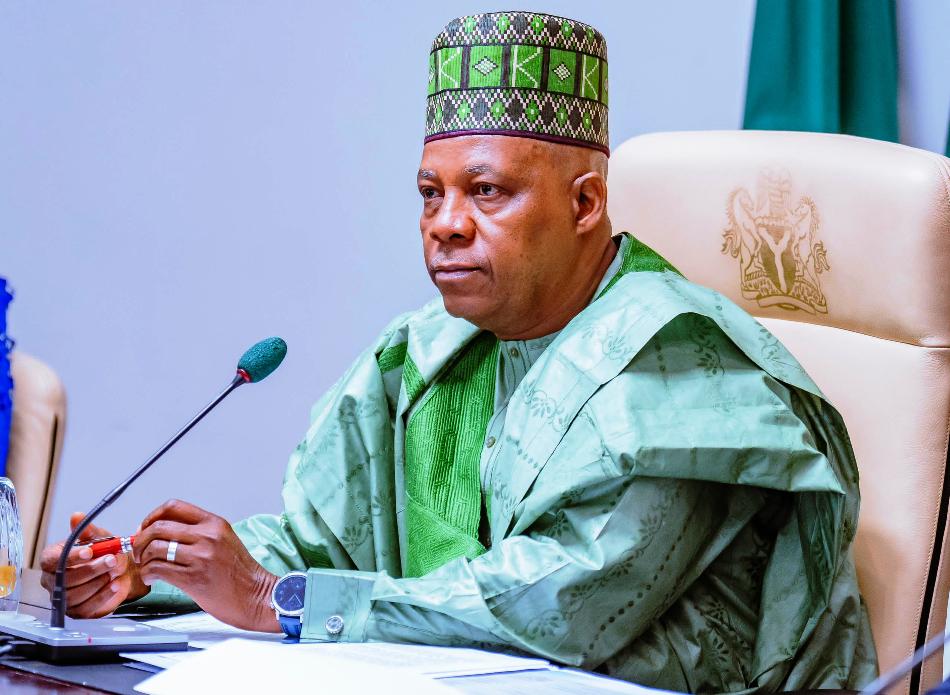With growth slowed to 1.28 per cent in second quarter (Q2) from 1.49 per cent in the Q1 to 2.20 per cent in the corresponding quarter of 2023, Nigeria’s manufacturing sector remains too weak to make any significant impact in the economy, the Lagos Chamber of Commerce and Industry (LCCI), has said.
Its President, Gabriel ldahosa lamented that recent manufacturing indicators reflect a burdened production sector bedevilled with the high production cost compounded by a regime of punitive high interest rates, weak national currency and weak consumer demand as inflation erodes people’s per capita disposable income; and costly logistics due to high energy costs.
Idahosa who spoke on the state of the nation, urged the Federal Government to give more attention to the manufacturing sector by addressing factors contributing to the high cost of production, including high inflation, high interest rates, multiple taxation, and volatile exchange rates.
He recommended a combination of monetary and fiscal authorities to focus on the factors driving the inflation rates by tackling supply-side deficiencies instead of focusing too much on demand-side management.
He urged the government to adopt prudent fiscal policy measures and create a business environment that promotes non-oil export growth and competitiveness. This is projected to boost export earnings, diversify foreign exchange earnings, raise domestic revenue, increase business productivity, and improve citizen welfare.
Idahosa also urged the government to continue making credit available to micro, small and medium enterprises (MSMEs) to support their operations and production lines.
Concessionary interest rates lower than Central Bank of Nigeria (CBN) prevailing MPR, are hereby advocated for the MSMEs he stated.
According to him, the high lending rates make it challenging for businesses to access credit, especially for SMEs that are the backbone of the economy. He warned that the increase in production costs could lead to higher prices for goods and services, potentially affecting the competitiveness of Nigerian products in Africa and global markets, respectively.
He therefore urged the government to focus on improving real sector productivity with massive investment in infrastructure, reviving government-owned oil refineries, and reducing the bottlenecks in fuel supply.
On security, he stressed the need for government to prioritize addressing the insecurity bedeviling the country and strategically focusing on increasing national agricultural productivity. He specifically recommended that the government incentivize sub-national governments, particularly at the grassroots levels, to increase funding and investment in the agriculture sector to boost productivity.
“The CBN should incentivize banks to allocate more credit to agriculture and agro-processing to improve the sector’s private investment and productivity growth. We commend Prof. Attairu Jega’s Presidential Livestock Development Committee on submitting its report and urge the government to implement key policies and recommendations that will increase livestock and aquaculture productivity in the country,” he said.
He lamented that the private sector, which serves as the engine of growth and employment generation in Nigeria, is currently plagued with increased borrowing costs, reduced investment incentives, heightened uncertainties in our policy environment, and a pressured foreign exchange market.
He frowned at the recent hikes in the MPR which he said have directly translated into higher interest rates, making it more expensive for businesses to access credit for working capital, expansion, and sustainability. He disclosed that with the high yields from treasury bills and bonds, the government is attracting investments from both local and foreign portfolio investors. In his words this has crowded out the private sector from accessing credit.
“We have consistently advised that rate hikes alone will not curb inflation without resolving the challenges of the real sector, which comprises the agriculture and manufacturing sectors. The real sector has demonstrated the capacity to create more jobs, manufacture products for consumption and export, and form the economy’s industrial base.
“While we understand that high interest rates attract Foreign Portfolio Investments (FPIs) and local investors to treasury bills and bonds, we lament the drying up of funds away from the private sector to government treasuries.
“Looking at Food inflation for September, the rate rose to 37.77 per cent on a year-on-year basis, which is 7.13 percent points higher than the 30.64 percent recorded in September 2023. This continued rise in inflation is driven by poor crop production by farmers who are constrained by security challenges, transport costs, and the emerging impact of climate change.
“Beverages, produced mainly by local and multinational companies, have also recorded rising costs due to the challenging environment in which these manufacturers operate. Livestock and poultry have also been strong drivers of food prices in the past year,” he said.
He urged the government to remain focused on boosting food production through ongoing policy reforms, targeted fiscal interventions and better management of Nigeria’s floating exchange rate regime.
He argued that the floating exchange rate policy adopted last year without any form of control has not shown good results till now. “As an import-dependent nation, we need to consider better management approaches that fit the current profile of our economy. Boosting the supply of forex will also help strengthen the Naira if transactions in the forex market are transparent enough to reduce speculative activities,” he said.
He however expressed optimism that things would get better if the government harmonizes its fiscal and monetary instruments to tackle the cost of agricultural production, enhance food processing, and sustain the fight against insecurity, inflationary pressures.






